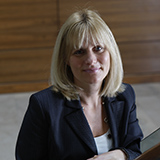 Avoiding conflicts of interest in a guideline committee is now recognised internationally as being one of the most important aspects of creating robust guidance. At NICE, we’ve reflected this in our evolving policy for managing potential conflicts, and have become more and more rigorous in our process for appointing people to committees. This is ever more challenging, as NICE’s role has expanded from health, into public health, and into social care. Potential areas for commercial interests therefore extend well beyond pharmaceutical and medical devices and technologies to diverse areas including tobacco and food industries, slimming programmes and providers of care homes.
Avoiding conflicts of interest in a guideline committee is now recognised internationally as being one of the most important aspects of creating robust guidance. At NICE, we’ve reflected this in our evolving policy for managing potential conflicts, and have become more and more rigorous in our process for appointing people to committees. This is ever more challenging, as NICE’s role has expanded from health, into public health, and into social care. Potential areas for commercial interests therefore extend well beyond pharmaceutical and medical devices and technologies to diverse areas including tobacco and food industries, slimming programmes and providers of care homes.
When I was setting up the NICE clinical guidelines programme in 2001, the approach to managing conflicts of interest was still in its infancy and markedly different. We were clear about the risks of financial vested interest and how to avoid them, but there was much more debate about the role of experts. We had many heated discussions about the pros and cons of an “expert chairperson” for guideline topics. Did we want someone with an established reputation in the guideline topic who could convince others of the benefits of the recommendations—such as an eminent professor of psychiatry for a guideline on schizophrenia—or someone with no prior expectations of the evidence who could lead an objective debate among committee members?
The chair of a guideline committee is in a particularly privileged position. He or she directs the discussion about the interpretation of the evidence and leads on developing the recommendations. Our approach to selecting chairs is therefore particularly rigorous, and now excludes anyone from chairing a guideline if they have carried out research in that field, or published papers that express a clear view on the topic. This has, at times, caused disappointment among those with a passion for their subject who would have loved to have led a NICE guideline in their field to influence and improve practice. But equally, we know that chairs with a significant reputation in the topic area tend to dominate the discussion and reduce challenge from other less expert committee members.
Expertise is often linked with financial interests in research funding, sometimes from industry sources. But expert opinion can be essential. In particular, where a guideline committee is looking at a new technique or procedure, we may only be able to find expertise from those with a research interest in the area or from those carrying out private practice using the technique. Both experts and private practitioners are likely to have some personal financial interest, as well as a professional interest from associated publications. To try and balance these potential vested interests with knowledge and experience, experts may be able to present evidence to the committee, but not to take part in the discussion when the recommendations are being formulated.
Caught between the critics who say NICE is being “ridiculous” for not listening to the experts, and those that say we are being overly influenced by those with a vested interest, we are opening a public discussion on our conflict of interest policy for our advisory committees. It is a complex policy, addressing a range of different interests. Getting the balance right is crucial, and we welcome all views.
Gillian Leng is the deputy chief executive at NICE, the National Institute for Health and Care Excellence, and a visiting professor at King’s College London.
